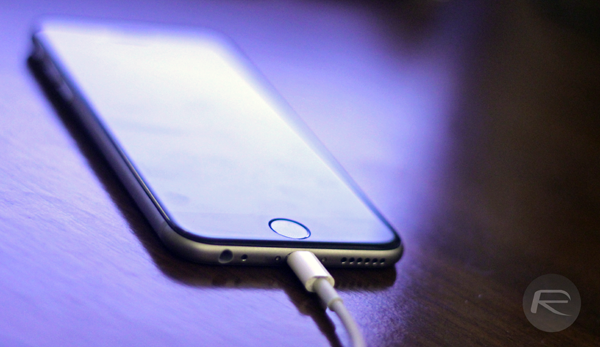Whatever your opinion may be of the iPhone 6 and iPhone 6 Plus, there’s little argument that Apple has made some significant changes (read: improvements) over the preceding models, and alongside the 2010 roll-out of the iPhone 4, the two new handsets must be considered the biggest upgrades to iPhone since the original. But as the tech community lauds the enlarged display, NFC, new design, bumped camera technology and iOS 8, among a myriad of other enhancements, one element that long-time users really wanted to see improved was the battery life. The iPhone has long since been bashed for its relatively poor battery retention, but thanks to increased capacity and software enhancements, those days may well be behind us, and now, it has emerged that charging may also be quicker as well.
In Apple’s constant strive to keep products as small, thin and minimal as possible, even the packaging of the iPhone 6 and iPhone 6 Plus is meticulously designed. Inside the box, you get your device, a Lightning cable, the standard literature and a wall charger, but according to tests carried out by iLounge and MacRumors forum users, the 2.1A charger might have been a more favorable option than the smaller wall charging plug offered as standard to users.


This is because, as per a number of tests carried out using a Kill-A-Watt electronic monitoring device coupled with OS X system information, the charging profiles of the iPhone 6 and iPhone 6 Plus are identical to that of the iPad, and thus by using the iPad’s 2.1A charger as opposed to the 1A offered in the box, both handsets can be charged to full capacity in around two hours or less.
The profiles of past iPhones would restrict the device so it was only able to draw 5W of power at any given time. But the iPhone 6 / 6 Plus profiles allow for 12W of power to be drawn, and as you might imagine, the device can be charged up much more quickly.
These tests are still ongoing, but if you have a 2.1A charger, grab it and swap it for the 1A charger you received with your device – you should notice a significant improvement in charge-up time.
Should Apple have offered a 2.1A charger as standard, given this information?
You can follow us on Twitter, add us to your circle on Google+ or like our Facebook page to keep yourself updated on all the latest from Microsoft, Google, Apple and the web.
